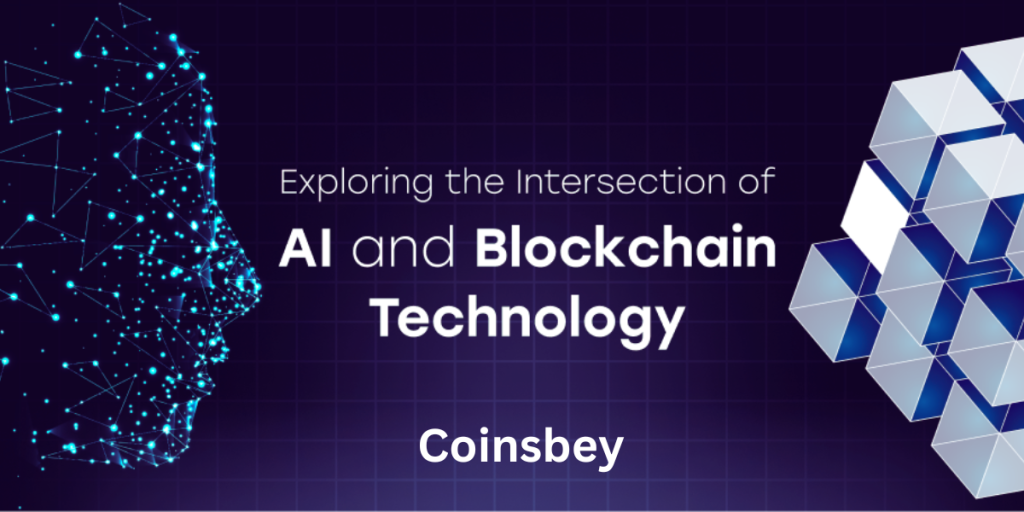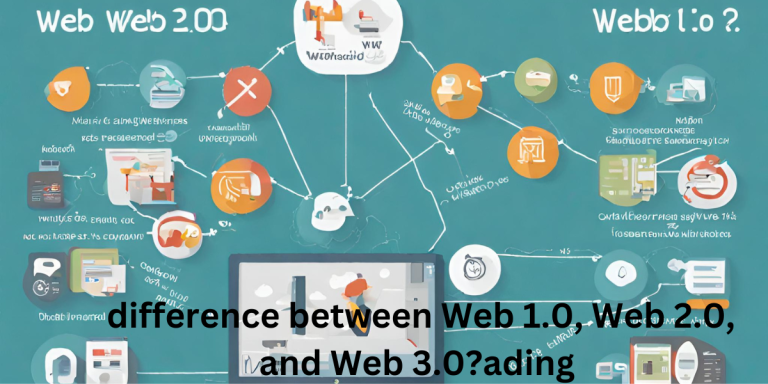The Intersection Between AI And Blockchain

AI And Blockchain
AI (Artificial Intelligence) and blockchain technology are two innovative fields that have been gaining significant attention in recent years. Their intersection has the potential to bring about transformative changes in various industries. Here’s an overview of the intersection between AI and blockchain technology:
Data Security and Privacy: Blockchain technology provides a decentralized and immutable ledger that can enhance the security and privacy of AI applications. AI systems often require large datasets for training, and blockchain can ensure that these datasets are tamper-proof and transparent. This is especially important in applications where data integrity is critical, such as in healthcare or financial services.
Smart Contracts: Smart contracts, which are self-executing contracts with the terms of the agreement directly written into code, can be integrated with AI systems. AI algorithms can make decisions based on predefined conditions within smart contracts. This can be used in various applications, including supply chain management, insurance, and legal processes.
Data Marketplace: Blockchain can facilitate the creation of decentralized data marketplaces where individuals have more control over their data. AI developers can access data from these marketplaces to train and improve their models while ensuring that data owners are compensated for their contributions.
Tokenization of AI Services: Blockchain enables the creation of tokens that represent ownership or access rights to AI services or models. Users can trade these tokens, allowing for a more decentralized and democratized AI ecosystem. This can promote innovation and collaboration in the AI space.
Decentralized Autonomous Organizations (DAOs): DAOs, which are organizations run by code and controlled by token holders, can use AI algorithms for decision-making processes. These decentralized entities can be governed and managed using blockchain technology, making them transparent and resistant to censorship.
Supply Chain Management: AI and blockchain can be used together to improve supply chain transparency. AI can be employed for predictive analytics and optimization, while blockchain can ensure the authenticity and traceability of products throughout the supply chain.
Fraud Detection: AI can be used to enhance fraud detection systems within blockchain networks. By analyzing transaction data and patterns, AI can identify suspicious activities and help maintain the integrity of the blockchain.
Scalability: Blockchain technology faces challenges with scalability and transaction speed. AI can be used to develop solutions for optimizing blockchain networks, improving consensus algorithms, and enhancing the overall performance of decentralized systems.
Energy Efficiency: AI can be employed to optimize energy consumption in blockchain networks, which is a concern in many blockchain ecosystems, especially those that rely on proof-of-work consensus mechanisms.
The intersection between AI and blockchain technology is still in its early stages, but it holds great promise for reshaping industries and creating more secure, transparent, and efficient systems. As both fields continue to evolve, we can expect to see more innovative applications and use cases emerge at the crossroads of AI and blockchain.
What is the intersection between AI and blockchain?
In recent years, two emerging technologies have been making waves in their respective fields: artificial intelligence (AI) and blockchain. While these technologies may seem worlds apart, they actually have a surprising amount of overlap. In this article, we will explore the intersection between AI and blockchain and how they can work together to create innovative solutions.
First, let’s briefly define what AI and blockchain are. AI refers to the ability of machines to perform tasks that would normally require human intelligence, such as recognizing speech, making decisions, and learning from experience. Blockchain, on the other hand, is a decentralized digital ledger that records transactions in a secure and transparent manner.
So, how can these two technologies work together? One potential application is in the field of data privacy. AI algorithms often require large amounts of data to train and improve their performance. However, this data is often sensitive and needs to be kept private. Blockchain can provide a secure and transparent way to store this data, allowing AI algorithms to access it without compromising privacy.
Another potential application is in the field of supply chain management. Blockchain can be used to track the movement of goods and ensure that they are authentic and have not been tampered with. AI can then be used to analyze this data and provide insights into how the supply chain can be optimized for efficiency and cost-effectiveness.
In addition, blockchain can help to address some of the challenges associated with AI, such as bias and lack of transparency. By using a decentralized ledger to store data and algorithms, it becomes much easier to audit and verify the results of AI systems. This can help to build trust in these systems and ensure that they are fair and unbiased.
Finally, blockchain can also be used to incentivize the development of AI. By creating a decentralized marketplace where developers can sell their algorithms and data, blockchain can help to drive innovation in the field of AI. This can lead to the creation of new applications and services that would not have been possible otherwise.
In conclusion, the intersection between AI and blockchain is an exciting area with a lot of potential for innovation. By combining the strengths of these two technologies, we can create solutions that are more secure, transparent, and efficient than ever before. As these technologies continue to evolve, we can expect to see even more exciting developments in the years to come.
Blockchain technology for AI development
Blockchain technology is transforming the way we develop artificial intelligence (AI) systems. The distributed ledger technology behind blockchain provides a secure and transparent way to store and share data, making it an ideal platform for AI development.
One of the biggest challenges in AI development is ensuring the accuracy and reliability of data. With blockchain, data is stored in a tamper-proof and decentralized manner, reducing the risk of data manipulation or loss. This ensures that AI systems are trained on accurate and reliable data, leading to more accurate predictions and better decision-making.
Another advantage of blockchain technology is its ability to facilitate collaboration between different parties. AI development often involves multiple stakeholders, such as data providers, developers, and users. Blockchain provides a secure and transparent platform for these stakeholders to share data and collaborate on AI development projects.
Furthermore, blockchain technology can help address privacy concerns associated with AI. By using blockchain to store and share data, individuals can maintain control over their personal information, while still contributing to AI development projects.
In conclusion, blockchain technology has the potential to revolutionize AI development by providing a secure, transparent, and collaborative platform for data storage and sharing. As the use of AI continues to grow, the integration of blockchain technology will become increasingly important in ensuring the accuracy and reliability of AI systems.
AI algorithms in blockchain networks
AI algorithms have been gaining significant traction in recent years, and their potential to revolutionize various industries is undeniable. One such industry that has seen the integration of AI algorithms is blockchain networks.
The use of AI algorithms in blockchain networks can enhance the security, efficiency, and scalability of these networks. For instance, AI algorithms can be used to detect and prevent fraudulent activities, identify potential security threats, and optimize network performance.
Moreover, AI algorithms can enable blockchain networks to become more self-sufficient and autonomous. These algorithms can help automate various processes such as smart contract execution, transaction validation, and consensus mechanisms.
In addition, the integration of AI algorithms in blockchain networks can facilitate the creation of decentralized applications (DApps) that are more intelligent and sophisticated. DApps can leverage the power of AI algorithms to provide personalized services, predictive analytics, and real-time decision-making capabilities.
Overall, the integration of AI algorithms in blockchain networks has the potential to transform the way we interact with digital assets and services. As the technology continues to evolve, we can expect to see more innovative use cases that combine the power of AI and blockchain.
